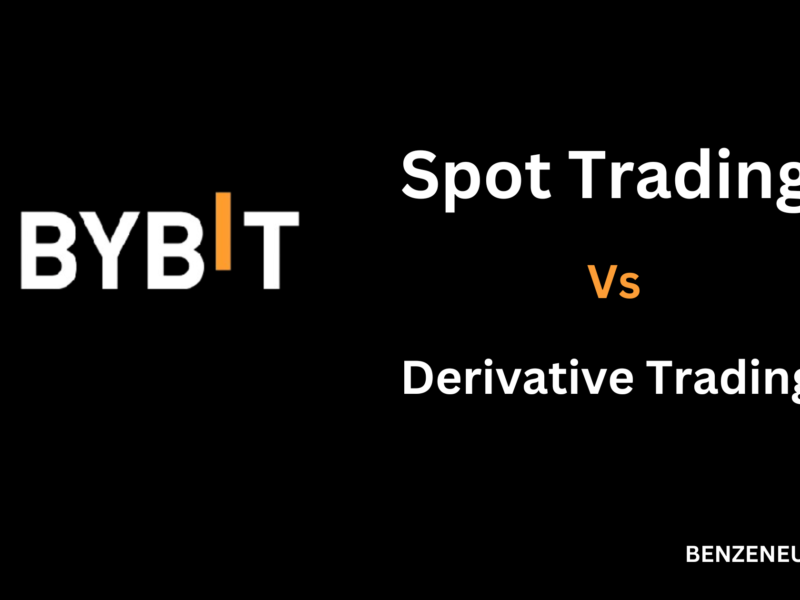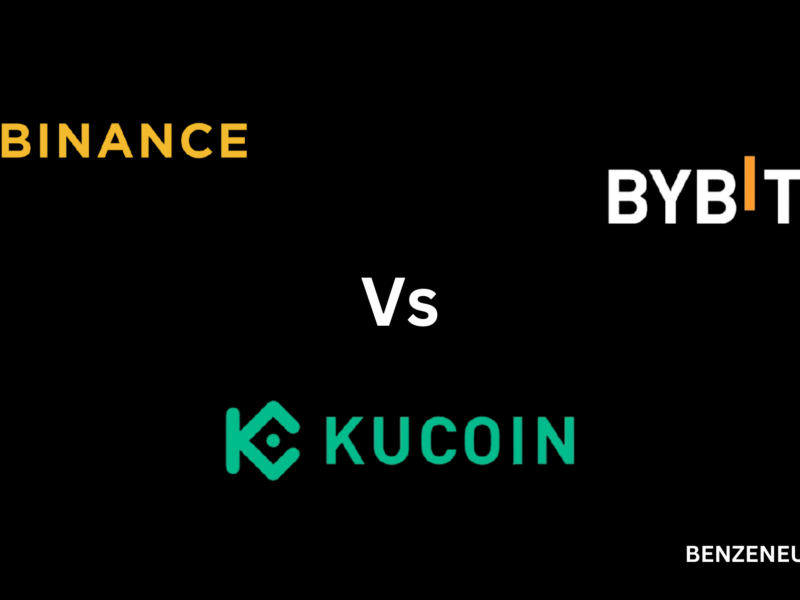Cryptocurrency trading has exploded in popularity, offering a potential pathway to financial freedom for many. However, the multitude of trading platforms can leave you feeling like you’re lost in a maze. One moment you’re excited about diving into the crypto world, the next, you’re bogged down by the endless choices of exchanges, each claiming to be the best.
This issue often boils down to a simple problem: finding a platform that aligns with your trading style and needs. Whether you’re a high-stakes trader looking for advanced tools or a novice interested in automated trading solutions, choosing the right exchange is crucial.
Navigating the world of cryptocurrency trading can be overwhelming. With so many platforms available, each offering a myriad of features, finding the right exchange that meets your specific needs can be a daunting task. Two popular platforms in the market are Bybit and Pionex. Both have unique strengths, but which one is right for you? This article aims to compare Bybit and Pionex, helping you make an informed decision.
Bybit vs Pionex: Comparison Table
| Feature | Bybit | Pionex |
|---|---|---|
| Launch Year | 2018 | 2019 |
| Focus | Derivatives trading (perpetual contracts and futures) | Automated trading with built-in trading bots |
| Leverage | Up to 100x | Up to 4x leverage |
| Mobile App | Available on iOS and Android | Available on iOS and Android |
| Advanced Trading Tools | TradingView charts, robust API, multiple order types | Built-in trading bots, TradingView charts, multiple order types |
| User Education | Bybit Academy for tutorials and trading strategies | Pionex Academy offers tutorials, articles, and trading tips |
| User Interface | Clean, intuitive, customizable interface | User-friendly, bot-integrated interface |
| Security | Cold storage for majority funds, 2FA, insurance fund, bug bounty program | Cold storage for majority funds, 2FA, insurance fund, bug bounty program |
| Supported Cryptocurrencies | Major cryptocurrencies (Bitcoin, Ethereum, Ripple, etc.) | Wide range of cryptocurrencies including major coins and numerous altcoins |
| Trading Pairs | Limited selection | Extensive selection |
| Supported Countries | Many countries with some regional restrictions | Wide availability with some regional restrictions |
| Languages | Multiple languages supported | Multilingual support |
| Trading Fees | Maker fee: -0.025%, Taker fee: 0.075% | 0.05% flat trading fee |
| Withdrawal Fees | Varies by cryptocurrency, generally competitive | Varies by cryptocurrency, generally competitive |
| Deposit Fees | None | None |
| Regulatory Compliance | Operates in favorable jurisdictions, optional KYC for basic features, required for higher limits | Complies with various regulations, mandatory KYC for higher limits |
| Customer Support | 24/7 support, quick response times | 24/7 support |
| Community Engagement | Active community and social media presence | Strong community presence |
The Problem: Finding the Right Exchange
Imagine you’re new to crypto trading. You’ve done your research, watched countless YouTube tutorials, and you’re ready to make your first trade. But there’s a catch—you’re overwhelmed by the number of exchanges available. You need a platform that’s user-friendly, secure, and aligns with your trading goals. This is where Bybit and Pionex come into play.
The Solution: Bybit and Pionex
Bybit is a powerhouse in the derivatives trading arena, offering up to 100x leverage. It’s designed for those who are serious about high-stakes trading and need robust tools to navigate the volatile crypto markets. On the other hand, Pionex caters to traders who prefer a more hands-off approach, providing built-in trading bots to automate trading strategies. Both platforms are excellent in their own right, but they serve different types of traders.
Bybit: A Personal Experience
I remember when I first stumbled upon Bybit. I was initially drawn to its clean, intuitive interface and the promise of high leverage. As a trader looking to capitalize on short-term market movements, the advanced charting tools and multiple order types were a godsend.
The platform’s security measures, including cold storage and two-factor authentication, gave me the confidence to trade larger sums.
Bybit’s fee structure was another highlight. With maker fees at -0.025% (a rebate) and taker fees at 0.075%, I found myself saving more on trades compared to other platforms. The 24/7 customer support was responsive, helping me navigate any issues swiftly.
Pionex: A Personal Experience
While Bybit was great for high-leverage trading, there were times when I wanted to take a step back and let automation handle the trades. That’s when I discovered Pionex. This platform’s built-in trading bots were a game-changer. With options like the Grid Trading Bot and the DCA Bot, I could automate my trading strategies without constantly monitoring the markets.
Pionex’s user-friendly interface made it easy to set up these bots, and the flat 0.05% trading fee was appealing. The security features were robust, and the platform’s compliance with various regulations reassured me of its legitimacy. The 24/7 support was always there when I needed assistance, making my experience smooth and hassle-free.
Comparing Effectiveness
Bybit is incredibly effective for traders who are comfortable with high-leverage trading and need advanced tools. Its focus on derivatives trading and the availability of up to 100x leverage make it a preferred choice for seasoned traders looking to maximize their gains from market movements. The platform’s educational resources, such as Bybit Academy, provide valuable insights and strategies, helping traders refine their skills.
Pionex, on the other hand, excels in providing automated trading solutions. The built-in bots are perfect for traders who want to implement complex strategies without the need for constant oversight. Pionex’s wide range of supported cryptocurrencies and extensive selection of trading pairs cater to diverse trading preferences. The platform’s straightforward fee structure and comprehensive educational resources make it accessible to both novice and experienced traders.
Bybit vs Pionex: FAQs
1. Is Pionex the best trading bot?
Pionex is highly regarded for its built-in trading bots, offering a range of automated trading strategies like Grid Trading and DCA (Dollar-Cost Averaging). While it is one of the most popular and user-friendly platforms for trading bots, whether it is the “best” depends on individual needs and preferences. Some traders might find other platforms more suitable based on specific features or customization options.
2. What are the disadvantages of Bybit?
Bybit has several notable disadvantages:
- Limited Spot Trading: Bybit primarily focuses on derivatives trading, which may not appeal to traders interested in spot trading.
- High Leverage Risks: Offering up to 100x leverage can lead to significant losses if not managed properly.
- Regional Restrictions: Bybit is not available in some countries, including the United States.
- Complexity for Beginners: The advanced features and high leverage might be overwhelming for new traders.
3. Is Bybit trading bot profitable?
The profitability of Bybit trading bots, like any trading tool, depends on various factors including market conditions, bot settings, and the trader’s strategy. While trading bots can help automate strategies and potentially generate profits, they are not guaranteed to be profitable and carry inherent risks.
4. Has anyone made a successful trading bot?
Yes, many traders and developers have created successful trading bots. Success varies based on the bot’s algorithm, the market conditions it is used in, and the user’s ability to adjust the bot’s settings to optimize performance. There are numerous case studies and testimonials from traders who have achieved consistent returns using well-designed bots.
5. How much can a trading bot make a day?
The earnings from a trading bot can vary widely depending on the bot’s strategy, market conditions, and initial investment. Some bots might generate small, consistent profits, while others could make substantial gains or losses. It is important to remember that past performance does not guarantee future results, and there is always a risk of loss.
6. How much does a Pionex bot cost?
Pionex does not charge additional fees for using its built-in trading bots. Users only pay the standard trading fees, which are a flat 0.05% per trade. This makes Pionex an attractive option for traders looking to use automated trading strategies without incurring extra costs.
7. Which AI bot is best for trading?
The “best” AI trading bot can vary depending on individual needs and market conditions. Popular options include:
- Pionex Bots: Known for their simplicity and effectiveness.
- 3Commas: Offers a variety of bots with customizable strategies.
- Cryptohopper: Provides advanced trading tools and AI-driven bots.
Each platform has its strengths, and the best choice depends on your specific trading style and requirements.
8. Is Bybit good for beginners?
Bybit can be challenging for beginners due to its focus on high-leverage derivatives trading and advanced features. However, it offers educational resources like Bybit Academy, which can help new traders learn and improve. Beginners should start with caution, thoroughly understanding leverage and risk management before diving into trading.
9. Do professional traders use bots?
Yes, many professional traders use bots to automate their trading strategies. Bots can execute trades faster than humans and can work 24/7, which is beneficial in the fast-paced crypto market. However, professional traders often use bots in conjunction with manual strategies and continuously monitor and adjust their bots to optimize performance.
10. Can you lose in bot trading?
Yes, trading bots can incur losses, especially if the market conditions are unfavorable or if the bot’s strategy is poorly designed. While bots can automate trading and potentially increase efficiency, they are not foolproof and carry risks. It’s essential to regularly monitor bot performance and adjust settings as needed to mitigate losses.
Related:
- Bybit vs MEXC
- Bybit vs. OKX
- Bybit vs Kucoin
- Bybit vs Binance
- Bybit Review
- Bybit vs Bitget
- Bybit Vs BingX
Conclusion
Choosing between Bybit and Pionex ultimately depends on your trading style and preferences. If you’re a trader who thrives on high-leverage derivatives trading and requires advanced tools, Bybit is the way to go.
Its security measures, competitive fees, and user-friendly interface make it a reliable choice for serious traders.
If you prefer automated trading and want to leverage the power of trading bots, Pionex is an excellent option. Its user-friendly interface, extensive range of supported cryptocurrencies, and built-in bots make it a versatile platform for traders of all levels.
Also check:



